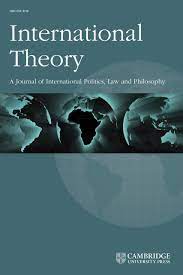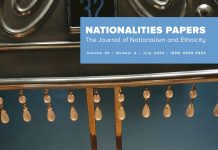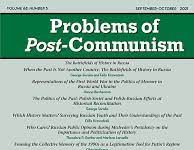Marina Vulović and Filip Ejdus
The traditional Laing–Giddens paradigm views ontological insecurity as an unusual mental state triggered by critical situations and characterized by feelings of anxiety, disorientation and paralysis. However, theories inspired by Lacan suggest a different perspective, stating that ontological insecurity is not an exception but rather a regular state of mind. Similarly, ontological security is a fantasy stemming from the desire to fill the primordial lack, thus fuelling agency. While these Lacanian interpretations have introduced a fresh viewpoint into Ontological Security Studies (OSS), they have not fully incorporated one of the key concepts from Lacanian psychoanalysis – the object-cause of desire (French: objet petit a) – into international relations theory. In this article, we present a framework of how to conceptualize and empirically study the objects-cause of desire in world politics. Our arguments are exemplified in a case study of Serbia’s resistance to Kosovo’s UNESCO membership in 2015.
https://www.cambridge.org/core/journals/international-theory/article/objectcause-of-desire-and-ontological-security-evidence-from-serbias-opposition-to-kosovos-membership-in-unesco/389753787C17902C1E82841B0CC881FB




